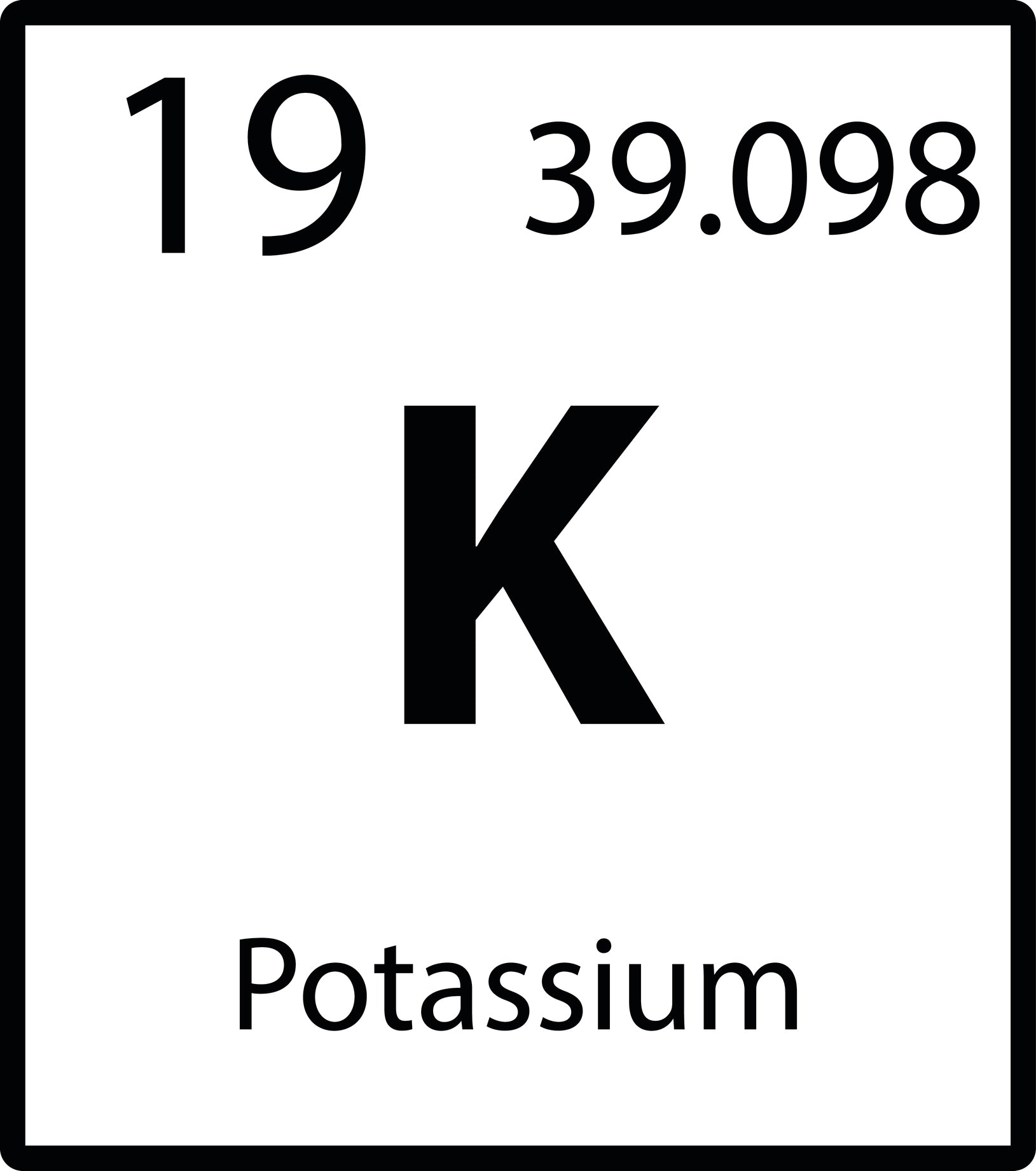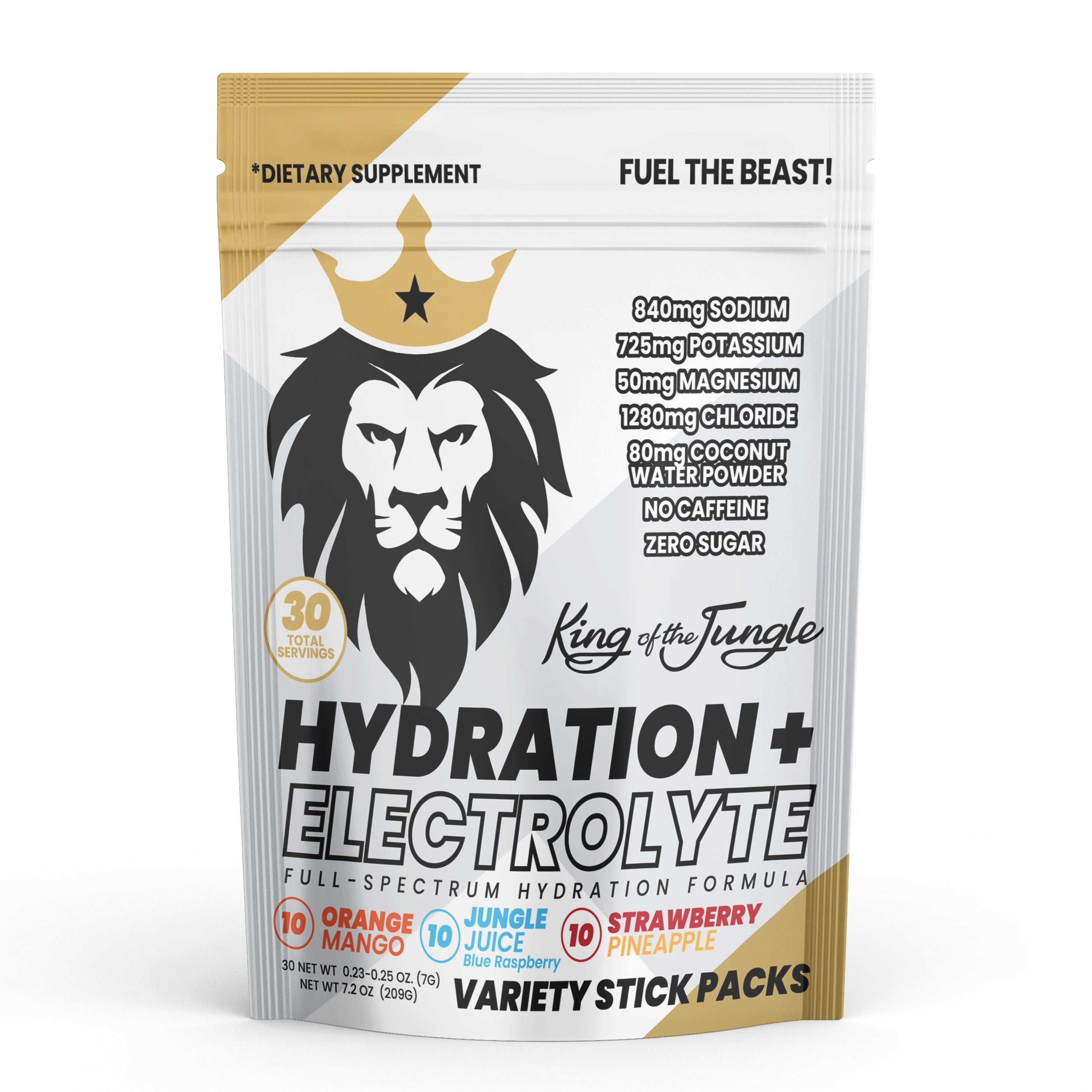Potassium and Magnesium Citrate : Why it’s important in a Pre-workout

Potassium and Magnesium Citrate : Why it’s important in a Pre-workout
It's quite astonishing to observe that most pre- and post-workout products available today lack adequate levels of essential electrolytes: potassium and magnesium. A significant number of pre-workouts contain stimulants like caffeine, which can lead to increased heart rate and blood pressure in individuals who are susceptible. On the other hand, potassium and magnesium have shown the ability to reduce blood pressure, likely by promoting vasodilation and thereby reducing blood pressure. This leads to the question of whether potassium should be consumed before or after a workout – perhaps both scenarios could be beneficial.
Recent research has pinpointed that an optimal dose of 200 mg of caffeine is effective in enhancing both aerobic and anaerobic performance. This exact dose is present in King of the Jungle Pre-workout®. Notably, King of the Jungle Pre-workout® features additional ingredients such as 8 grams of citrulline malate and grape skin extracts. These components stimulate nitric oxide production, adding to the potency of vasodilation and overall performance enhancement.
Every serving of King of the Jungle Pre-workout® and King of the Jungle Recovery ® incorporates 500 mg of potassium from potassium citrate and 50 mg of magnesium from magnesium citrate. Scientific studies have demonstrated that dietary intake of potassium and magnesium can effectively reduce blood pressure. Moreover, an increased intake of these two minerals contributes to vasodilation by augmenting nitric oxide and prostacyclin, thereby improving blood flow, endothelial function, and ultimately lowering blood pressure.
The combination of potassium and magnesium citrate holds the potential to elevate cardiovascular performance, thus enhancing endurance. Additionally, these citrates can enhance exercise performance by countering the accumulation of lactic acid in muscles, further amplifying exercise capacity, power, and strength. They function as blood buffers by increasing extracellular pH and the gradient between blood and active muscle.
Magnesium, a mineral involved in over 300 metabolic reactions, plays a critical role in promoting protein synthesis, regulating energy production, central nervous system function, and maintaining electrolyte balance, glucose metabolism, insulin function, and muscle activity, including that of the heart. Low levels of potassium and magnesium can lead to muscle cramps. Furthermore, potassium citrate treatment has been shown to be effective in preventing kidney stones. As intense exercise can lead to fluid loss and dehydration, it can increase the risk of kidney stones due to dehydration. Adequate intake of potassium and magnesium citrate can play a protective role against kidney stones. Interestingly, potassium citrate has been found effective in preventing kidney stones in individuals on a high-fat, low-carb ketogenic diet, which can induce acidosis. Proper potassium and magnesium citrate intake may mitigate metabolic acidosis in athletes who consume substantial amounts of protein.
A study conducted at the University of Parma in Italy revealed that magnesium levels were closely linked to the levels of anabolic hormones like testosterone and IGF-1 in men. Individuals with high activity levels may experience deficiencies in magnesium and potassium due to excessive losses through sweat and urine.
Although sodium bicarbonate has been associated with improved anaerobic performance and strength by buffering lactic acid, its use is often hindered by gastrointestinal discomfort. In contrast, potassium and magnesium citrate serve as preferred buffering agents that are well-tolerated by the gastrointestinal tract.
When combined with osmolytes like creatine monohydrate and betaine, potassium and magnesium citrate function as osmoprotectants. These osmolytes enhance muscle hydration, sustain cell volume, and maintain fluid balance. The formulas of King of the Jungle Pre-workout® and the coming soon King of the Jungle Recovery ® contribute to muscle fluid balance, leading to greater gains in strength and muscle protein synthesis. With all this in mind, the choice of whether to take potassium before or after a workout becomes less of an issue – incorporating potassium and magnesium citrate into both pre- and post-workout routines seems to be the missing piece in these formulas.
REFERENCES:
Magnesium Enhances Exercise Performance via Increasing Glucose Availability in the Blood, Muscle, and Brain during Exercise. Hsuan-Ying Chen, Fu-Chou Cheng, Huan-Chuan Pan, Jaw-Cheng Hsu, Ming-Fu Wang. Published January 20, 2014. http://journals.plos.org/plosone/article?id=10.1371/journal.pone.0085486
Empiric use of Oral Potassium Citrate Reduces Symptomatic Kidney Stone Incidence with the Ketogenic Diet. McNally MA, Pyzik PL, Rubenstein JE, Hamdy RF, Kossoff EH. Pediatrics. 2009;124(2):e300-e304 doi:10.1542/peds.2009-0217
Bioavailability of Potassium and Magnesium, and Citraturic Response from Potassium-Magnesium Citrate, K. Koenig et al The Journal of Urology. Volume 145, Issue 2, February 1991, Pages 330-334. https://doi.org/10.1016/S0022-5347(17)38330-1
Magnesium intake is associated with strength performance in elite basketball, handball and volleyball players. Diana Aguiar Santos, et al. Magnesium Research. 2012;24(4):215-219. doi:10.1684/mrh.2011.0290
Effect of magnesium supplementation on blood pressure: a meta-analysis. L Kass, J Weekes & L Carpenter. European Journal of Clinical Nutrition volume 66, pages 411-418 (2012)
Can Magnesium Enhance Exercise Performance? Zhang Y, Xun P, Wang R, Mao L, He K. Nutrients 2017, 9, 946


